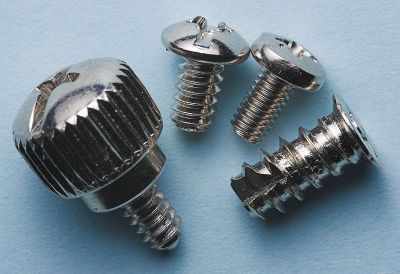Cost-effective manufacturing of small metal parts

Screws, fot. By Afrank99 (Own work) [CC BY-SA 2.5
Tapping the market for small, customised metal parts could boost the competitive position of small and medium-sized enterprises (SMEs). A new manufacturing platform designed with this in mind promises better parts at lower prices.
Additive manufacturing (AM) is a maturing technology well-suited to such jobs. A part of complex 3D geometry is built up from details provided in a computer-aided design file. However, improvements in accuracy and post-processing are required to reduce product costs.
With EU funding support, the project 'High performance production line for small series metal parts' (HYPROLINE) intends to boost market share for European SMEs. Focused on the entire manufacturing process from product design to quality control during manufacture, scientists will deliver a versatile manufacturing platform.
The blanks are produced using patented 3D metal inkjet printing technology (Digital Metal). They are scanned for near-net shape geometry and then robotically positioned on a transport system for laser post-processing. The HYPROLINE system thus integrates the complementary capabilities of AM and laser-based structuring. With the addition of process monitoring and metrology, predicted benefits include reduced time-to-market, fewer rejects and scrap, and better products with higher market value.
Researchers are focusing on three different metals: stainless steel 316L, titanium and copper. Pilot implementation will be demonstrated with serial production of customised high-quality parts on the order of 10 mm for jewellery companies, dental parts and microwave electronics.
The consortium has now printed the first 3D stainless steel parts using their improved printing system that dramatically reduces scrap. The parts are being used to test the entire HYPROLINE system, leading to increased accuracy when building up small features. Scientists have also begun definition of the processing parameters for laser polishing of near-net shape metallic parts, including the critical input scanning step.
Software development is an important component given the very large data sets. The team is making important progress on data flow for scanning of geometries with very high precision and processing of that information. The data will also be used for control of processing tools and for in-line quality control algorithms.
The automated and high-speed HYPROLINE system for production of small metallic parts with high precision promises to significantly enhance the competitive position of Europe's SMEs. It will also foster the production of innovative components that were previously cost prohibitive for consumers.
published: 2015-05-18